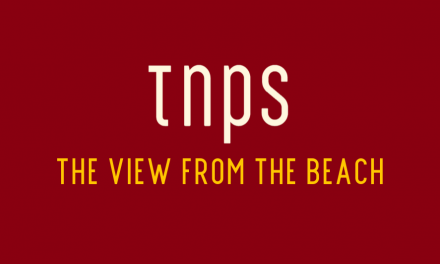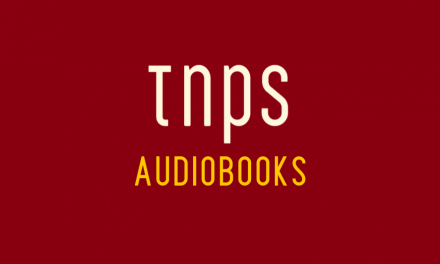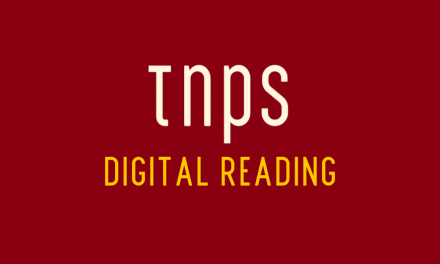It was one year ago this month that Amazon launched in Poland, amusingly selling Kindle devices but suggesting Polish ebook lovers head off to the US store to choose their ebooks. The problem there being the Kindle store does not support the Polish language.
Among the much positive reportage emerging from this year’s Bologna Children’s Book Fair an article by Ed Nawotka for Publishers Weekly jumped out for highlighting a huge problem – and an apparent misconception – that is holding back emerging markets as they begin to embrace the digital advantage.
Referencing “In Changing Trends in Publishing: Addressing the Fear of New Technology”, Nawotka picks up on comments from Mariam Alobaidli, corporate communications director at the Emirates Publishers Association and Tamer Said, managing director of Kalimat Group, also of the UAE.
Per Nawotka:
“The pandemic made it clear that a digital solution was necessary for us all,” said Said, who noted that digital distribution of titles allows for greater access across all 22 Arabic-speaking nations. “That said, it is not easy. The Kindle and many of the major platforms do not natively support Arabic, so getting our titles onto those platforms can be very challenging. I just don’t understand why they can do it for Chinese, but they cannot do it for Arabic.”
This lies at the heart of the digital books industry around the world, where publishers in emerging markets simply don’t have the means to reach consumers in their own language because the local internet infrastructure has not been developed and the big international players that have effectively created the ebook and audiobook markets in other parts of the world simply are not available at all or do not support local languages.
Let’s deal first with Amazon which for western publishers is “the” ebook and audiobook platform operator.
The generality of Said’s statement is spot on. Amazon’s Kindle supports Chinese, and some 40 other languages, but if you publish in a language that is not supported then Amazon will not allow the ebooks and audiobooks on their system.
To an extent this makes sense – for Amazon at least. Contrary to popular opinion the Kindle store is not available worldwide, and, outside a handful of core markets, the only access is to the Kindle “international store” – a watered down version of the US store. That’s where the Kindle store is even viewable.
Writing from The Gambia, West Africa, I cannot even see the Kindle store when I go to Amazon unless I sign into my pre-existing UK account. And that’s the same for a lot of the world.
Unsurprising and understandably Amazon is not investing lots of money to support Kindle languages in countries where it does not operate
But even where an Amazon store is available, the Kindle store often is not. Sweden for example, or Poland.
In fact it was one year ago this month that Amazon launched in Poland, amusingly selling Kindle devices but suggesting Polish ebook lovers head off to the US store to choose their ebooks. The problem there being the Kindle store does not support the Polish language.
Such is the bizarre way Amazon does things, and of course complacent publishers in the mainstream Amazon markets neither know or care, unless they have an interest in publishing in Polish.
But for Arabic the situation is not so straightforward. Ed Nawotka quotes Tamer Said as saying,
The Kindle and many of the major platforms do not natively support Arabic, so getting our titles onto those platforms can be very challenging.
While it’s true Nook of course is not in MENA and nor is Apple Books or Kobo, Google Play Books is available across the Middle East and also in Egypt.
For Amazon it gets messy. Amazon now has localised stores in Egypt, Saudi Arabia and the UAE, but ebook lovers are sent to the US store. But on the bright side Arabic is a supported language for the Kindle through KDP, but only for ebooks, not for print. So its not entirely clear what tamer said means when saying, “The Kindle and many of the major platforms do not natively support Arabic.”
For audiobooks we have a similar situation where audiobook platforms limit their reach. Amazon’s Audible offers full platforms in only a handful of languages, which has left the door wide open for others to fill the vacuum, but there have been few challengers.
The most promising was Storytel as it launched in the UAE and then bought out Kitab Sawti, but given the current mood at Storytel it’s safe to say we won’t be seeing any further expansion across the MENA markets for a good while.
The other big obstacle to digital progress in emerging markets like MENA is the hoary old topic of piracy, and here it seems the problem may lay with Google, or such is what we may surmise from Lina Chebaro of Neel Wa Furat, a major online bookstore (print and digital) in the Middle East.
Our biggest competitor is piracy. Nearly every book published in Arabic is available as a PDF online. It is a shame and it makes no sense that a company like Google won’t take these down. Piracy is so pervasive, that is has prevented publishers from embracing digital format.
Tamer Said added,
I don’t understand why the Arabic-speaking countries don’t get the same level of attention and service that other countries do. We are here and want to work with you.
Piracy of course happens even in the mature publishing markets – there is no magic wand solution to this problem – but it’s fair to say that most mature market piracy happens via rogue state websites, not in plain sight as would appear to be the case in the emerging markets.
Of course Google is just one of any number of online avenues where pirated books are readily available, but Said’s words really say it all: “Arabic-speaking countries don’t get the same level of attention and service that other countries do.”
IPA President Bodour Al Qasimi, will be very familiar with this scenario, of course, and we can safely assume has this on her IPA “to do” list, not just for Arabic, but for all languages.
But this is perhaps an area that needs elevating in priority, because all the IPA‘s work towards global inclusion through digital embrace will mean nothing if publishers cannot trust the mega-tech platforms to at least try to control the piracy problem.
But the onus too is on publishers and their representatives to ensure their own governments have in place and rigorously enforce copyright laws.





